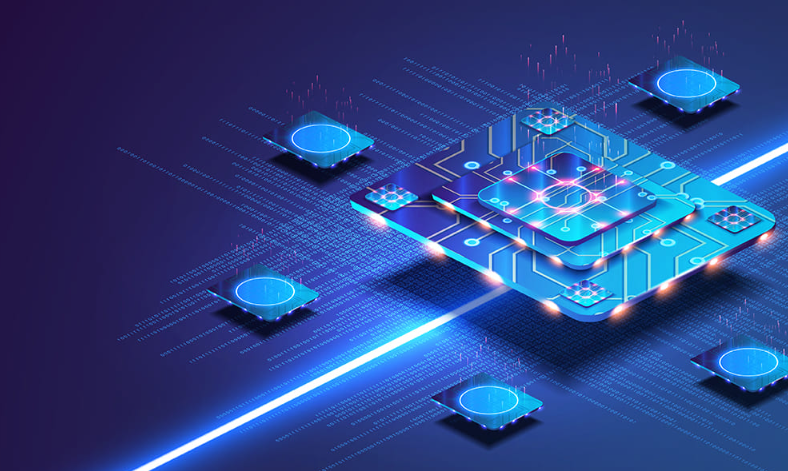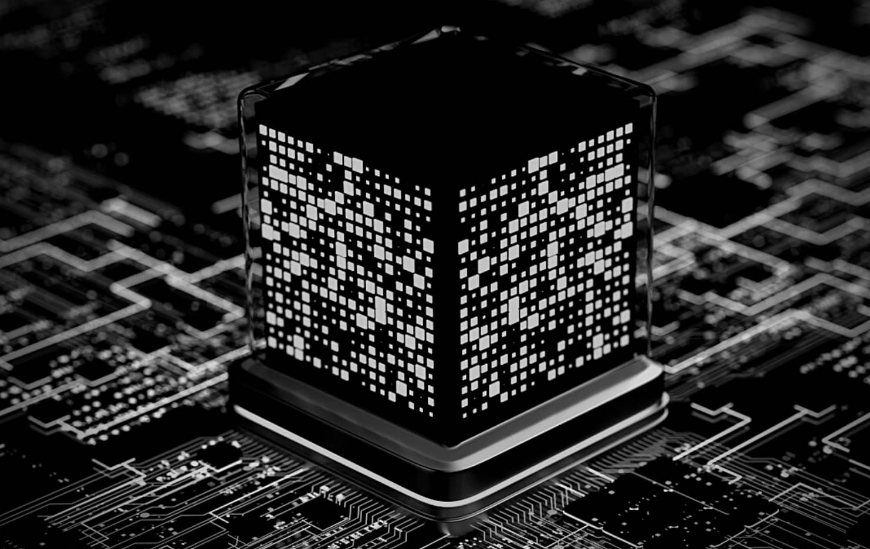What is a Benefit of Interference in Quantum Computing? [All You Need to Know]
Quantum computing represents a paradigm shift from classical computing, leveraging the principles of quantum mechanics to dramatically enhance computational power. Among these principles, interference emerges as a cornerstone, boosting quantum computing’s efficiency and potential in significant ways. Today, we delve into this fascinating phenomenon to explore “What is a Benefit of Interference in Quantum Computing?”. Keep reading!
How Does Interference Contribute to the Advantages of Quantum Computing?

At the heart of quantum computing lies the principle of superposition – the concept that a quantum bit (qubit) can exist in multiple states at once, not just in binary form as 0 or 1 like classical bits. As computations occur, the multiple states of these qubits evolve and interfere with each other.
But what exactly does interference mean in this context? In quantum mechanics, interference describes the phenomenon whereby quantum states can add or cancel out, analogous to waves in a pond. When you throw two stones into a still pond, ripples form and interact, leading to areas where waves either amplify or cancel out. Similarly, in a quantum system, qubits interfere to create complex patterns of probability amplitudes, enabling quantum computers to solve problems in fundamentally different ways than classical computers.
What Are the Practical Benefits of Interference in Quantum Computing?

Interference plays a pivotal role in various quantum algorithms, notably Shor’s Algorithm for factoring large numbers, and Grover’s Algorithm for searching large databases. Interference essentially allows these algorithms to ‘prune’ the number of possibilities, effectively sifting through potential solutions and amplifying the probability of the correct answer.
Furthermore, interference enhances quantum parallelism, an aspect unique to quantum computing. It allows a quantum computer to perform multiple calculations simultaneously, significantly enhancing computational speed and efficiency. Interference ensures that the correct answer is ‘highlighted,’ while incorrect solutions cancel out, effectively turning the parallelism into a concrete computational advantage.
Can Interference in Quantum Computing Enhance Computational Power?

Yes, absolutely. Interference allows quantum computers to process vast amounts of information simultaneously, providing an unprecedented computational power advantage. It opens up new possibilities in various fields, from cryptography and artificial intelligence to material science and drug discovery.
How Does Interference Enable Quantum Computers to Perform Complex Calculations?

Quantum gate operations, fundamental for manipulating quantum information, are closely linked to the principle of interference. Quantum gates manipulate the quantum states of qubits, causing them to interfere in a controlled way. This controlled interference is key to performing complex calculations and forms the backbone of quantum computation.
How Does Interference Improve the Efficiency of Quantum Algorithms?
Quantum algorithms often leverage interference to improve their efficiency. By carefully controlling interference patterns, quantum algorithms can suppress incorrect answers and amplify correct ones. This property allows them to solve certain problems much more efficiently than any classical algorithm, providing a quantum computational advantage.
How Does Interference Help in Error Correction in Quantum Computing?
Interference is instrumental in quantum error correction, a process that protects quantum information against decoherence and computational errors. Decoherence results from unwanted interactions between quantum systems and their environments, causing the loss of quantum information. Careful manipulation of interference patterns can help identify and correct such errors, ensuring the reliability of quantum computations.
What Are the Potential Benefits of Interference in Quantum Simulation?
Quantum simulation, an exciting application of quantum computing, can immensely benefit from interference. By enabling the precise manipulation of quantum states, interference allows quantum simulators to model complex quantum systems accurately. This can revolutionize fields such as chemistry and material science, potentially leading to the discovery of new drugs and materials.
Can Interference Be Utilized for Secure Quantum Communication?
Interference plays a vital role in secure quantum communication protocols, like quantum key distribution (QKD). It ensures that any eavesdropping attempt will disturb the quantum state, creating noticeable interference patterns. This inherent security feature of quantum communication systems could redefine the future of cybersecurity.
Interference in Quantum Computing: Elevating Quantum Information Processing
Building on our previous exploration of quantum interference’s advantages, it’s imperative to delve deeper into how this unique principle enhances quantum information processing. As quantum technology evolves, our understanding of interference’s capabilities continues to expand, promising even more ground-breaking advancements.
How Does Interference Impact Quantum Information Processing?
Quantum information processing is fundamentally about manipulating quantum states in controlled ways to perform computational tasks. Interference, in this context, isn’t just an advantage—it’s a necessity.
The true power of a quantum computer lies not just in the ability to store vast amounts of information in superposed states but in manipulating these states using quantum gates to perform computations. During these operations, quantum states interfere with one another. By judiciously controlling this interference, we can guide a quantum computation toward the desired answer.
Interference and Quantum States Manipulation
Quantum states manipulation refers to the process of preparing, manipulating, and measuring qubits’ states to perform quantum computation. Interference plays a crucial role in each of these steps.
For instance, the act of preparing qubits often involves setting them in superposition states, wherein the qubits simultaneously exist in a state of 0 and 1. This prepares the ground for interference to take place. During computation, quantum gates—driven by quantum interference—control and transform these superposition states. Finally, the act of measurement, which collapses the superposition, is influenced by interference that occurred during computation, revealing the solution to the problem at hand.
Quantum Measurement Techniques and Interference
Quantum measurement is a critical step in quantum computation, wherein the final state of the qubits is read to determine the result of the computation. This process is fundamentally probabilistic—meaning we can’t predict the exact outcome, but we can determine the probabilities of different outcomes.
Quantum interference plays an integral part in shaping these probabilities. By carefully controlling the interference that happens during computation, we can make sure that the correct answer has a high probability of being observed when measurement is performed.
Quantum Parallel Processing and Interference
Quantum parallelism allows quantum computers to evaluate multiple possibilities simultaneously, a feature enabled by the superposition principle. However, without interference, quantum parallelism would merely be a theoretical curiosity.
Interference is the key that transforms this quantum parallelism into a tangible computational advantage. By causing the probability amplitudes associated with incorrect answers to interfere destructively and cancel out—and those of correct answers to interfere constructively and add up—interference allows quantum computers to zero in on the right solution much more quickly than classical computers.
Quantum Communication Protocols: The Interference Advantage
Quantum communication leverages quantum states to transmit information—promising secure communication protocols like Quantum Key Distribution (QKD). The security of these protocols hinges on the interference of quantum states.
In QKD, for instance, any attempt by an eavesdropper to measure the transmitted quantum states will inevitably disturb those states, changing their interference pattern—a change that can be detected by the legitimate recipients. Thus, interference ensures the robustness of quantum communication against eavesdropping attempts, heralding a new era in secure communication.
Quantum Simulation: Harnessing Interference
Quantum simulation—the use of quantum computers to simulate complex quantum systems—has vast potential in fields such as material science and drug discovery. These simulations involve creating and manipulating highly complex interference patterns that correspond to the behavior of the system being simulated.
By harnessing the power of interference, quantum simulators can precisely model systems that would be intractable for classical computers. This could catalyze the discovery of new materials and drugs and improve our understanding of fundamental physical processes.
Also Read: Which Element of Accenture’s Applied Quantum Computing Strategy Directly Delivers Value to Clients?
Conclusion: The Quantum Leap with Interference
As we continue to unravel the quantum world, it’s increasingly clear that interference is not just a beneficial side effect—it’s central to the power of quantum computing. From enhancing computational capabilities to securing quantum communications, interference is indomitably at the heart of quantum technology’s revolutionary potential. We hope this guide about “What is a Benefit of Interference in Quantum Computing?” will prove much beneficial for all our readers.






